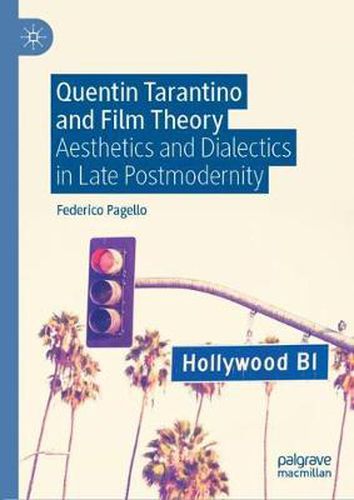Readings Newsletter
Become a Readings Member to make your shopping experience even easier.
Sign in or sign up for free!
You’re not far away from qualifying for FREE standard shipping within Australia
You’ve qualified for FREE standard shipping within Australia
The cart is loading…






This title is printed to order. This book may have been self-published. If so, we cannot guarantee the quality of the content. In the main most books will have gone through the editing process however some may not. We therefore suggest that you be aware of this before ordering this book. If in doubt check either the author or publisher’s details as we are unable to accept any returns unless they are faulty. Please contact us if you have any questions.
This book examines a set of theoretical perspectives that critically engage with the notion of postmodernism, investigating whether this concept is still useful to approach contemporary cinema. This question is explored through a discussion of the films written and directed by Quentin Tarantino, largely regarded as the epitome of postmodern cinema and considered here as theoretical contributions in their own right. Each chapter first presents key ideas proposed by a specific theorist and then puts them in conversation with Tarantino’s films. Jacques Ranciere’s theory of art is used to reject postmodernism’s claims about the ‘death’ of the aesthetic image in contemporary cinema. Fredric Jameson’s and Slavoj Zizek’s dialectical thinking is mobilized to challenge simplistic, ideological readings of postmodern cinema in general, and Tarantino’s films in particular. Finally, the direct influence of Carol Clover’s psychoanalytical approach to the horror genre on Tarantino’s work is discussed to prove the director’s specific contribution to a theoretical understanding of contemporary film aesthetics.
$9.00 standard shipping within Australia
FREE standard shipping within Australia for orders over $100.00
Express & International shipping calculated at checkout
This title is printed to order. This book may have been self-published. If so, we cannot guarantee the quality of the content. In the main most books will have gone through the editing process however some may not. We therefore suggest that you be aware of this before ordering this book. If in doubt check either the author or publisher’s details as we are unable to accept any returns unless they are faulty. Please contact us if you have any questions.
This book examines a set of theoretical perspectives that critically engage with the notion of postmodernism, investigating whether this concept is still useful to approach contemporary cinema. This question is explored through a discussion of the films written and directed by Quentin Tarantino, largely regarded as the epitome of postmodern cinema and considered here as theoretical contributions in their own right. Each chapter first presents key ideas proposed by a specific theorist and then puts them in conversation with Tarantino’s films. Jacques Ranciere’s theory of art is used to reject postmodernism’s claims about the ‘death’ of the aesthetic image in contemporary cinema. Fredric Jameson’s and Slavoj Zizek’s dialectical thinking is mobilized to challenge simplistic, ideological readings of postmodern cinema in general, and Tarantino’s films in particular. Finally, the direct influence of Carol Clover’s psychoanalytical approach to the horror genre on Tarantino’s work is discussed to prove the director’s specific contribution to a theoretical understanding of contemporary film aesthetics.